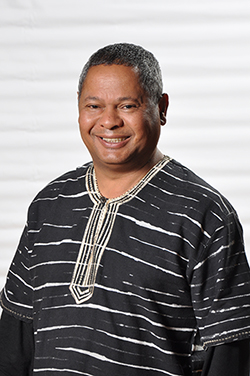Latest News Archive
Please select Category, Year, and then Month to display items
12 October 2020
|
Story Arina Engelbrecht
|
Photo Supplied
 Arina Engelbrecht from Organisational Development and Employee Well-being believes physical activity has a number of benefits for one’s health, including stress relief.
Arina Engelbrecht from Organisational Development and Employee Well-being believes physical activity has a number of benefits for one’s health, including stress relief.
Being physically active plays a big role in preventing the development of mental-health problems and in improving the quality of life of people experiencing mental-health problems.
Treatment for depression
Physical activity can be an alternative treatment for depression. It can be used as a stand-alone treatment or in combination with medication and/or psychological therapy. It promotes all kinds of changes in the brain, including neural growth, reduced inflammation, and new activity patterns are formed that promote feelings of calm and well-being. It releases endorphins – powerful chemicals in the brain that energise your spirit and make you feel good.
Physical activity can be very effective in relieving stress. Research in adults has found that physically active individuals tend to have lower stress levels compared to individuals who are less active. It also leads to improved sleep. When a person sleeps better and feels more rested, overall quality of life improves. They cope better with daily life stressors.
Reduce Alzheimer's risk
Regular physical activity can reduce your risk of developing Alzheimer's disease by up to 50%. It can also slow down further deterioration in those who have already started to develop cognitive problems. It stimulates the brain’s ability to maintain old connections as well as to make new ones.
A study asked people to rate their mood immediately after periods of physical activity (e.g. going for a walk/run, cycling, doing housework) and periods of inactivity (e.g. reading a book or watching television). Researchers found that participants felt more content, more awake, and calmer after being physically active compared to after periods of inactivity.
In conclusion, people who are physically active feel a sense of well-being, feel more energetic throughout the day, sleep better at night, have sharper memories, and feel more relaxed and positive about themselves and their lives.
“Being physically active not only changes your body, it changes your mind,
attitude, and your mood.” – Arina Engelbrecht
Prof Andre Keet to chair Ministerial Oversight Committee on Transformation
2017-07-14

Prof Andre Keet
Photo: Stephen Collet
Higher Education Minister Dr Blade Nzimande has increased from seven to 10 the number of members of the Ministerial Oversight Committee on the Transformation in the South African Public Universities.
In a government gazette published on 7 July 2017‚ Dr Nzimande appointed new members of the committee for a three-year term to be chaired by Prof Andre Keet, Director of the Institute for Reconciliation and Social Justice at the University of the Free State (UFS). Prof Keet is a returning member of the committee alongside former University of Fort Hare chancellor Dr Mvuyo Tom.
The purpose of the Ministerial Oversight Committee on Transformation in South African Public Universities is to monitor progress on transformation in public universities‚ serve as an expert advisory body and provide independent and external advice to the minister and the department.
The committee has been given 11 tasks‚ chief of which is to study and evaluate transformation plans and charters of all universities. It is mandated to use this exercise as a basis for the development of a sectoral transformation charter. It is also tasked with reviewing the annual reports of institutions on transformation and producing an annual report on the state of transformation in the higher education sector.
Prof Keet’s appointment comes at a pivotal time when transformation at universities has been at the heart of many debates in universities, government and broader society. Prof Keet said: “It is an honour and privilege to serve the sector at this level and in this capacity.”
The university is proud to have in its ranks a leader of such calibre who has also spearheaded transformation initiatives at the UFS through the Institute for Reconciliation and Social Justice over the past six years.